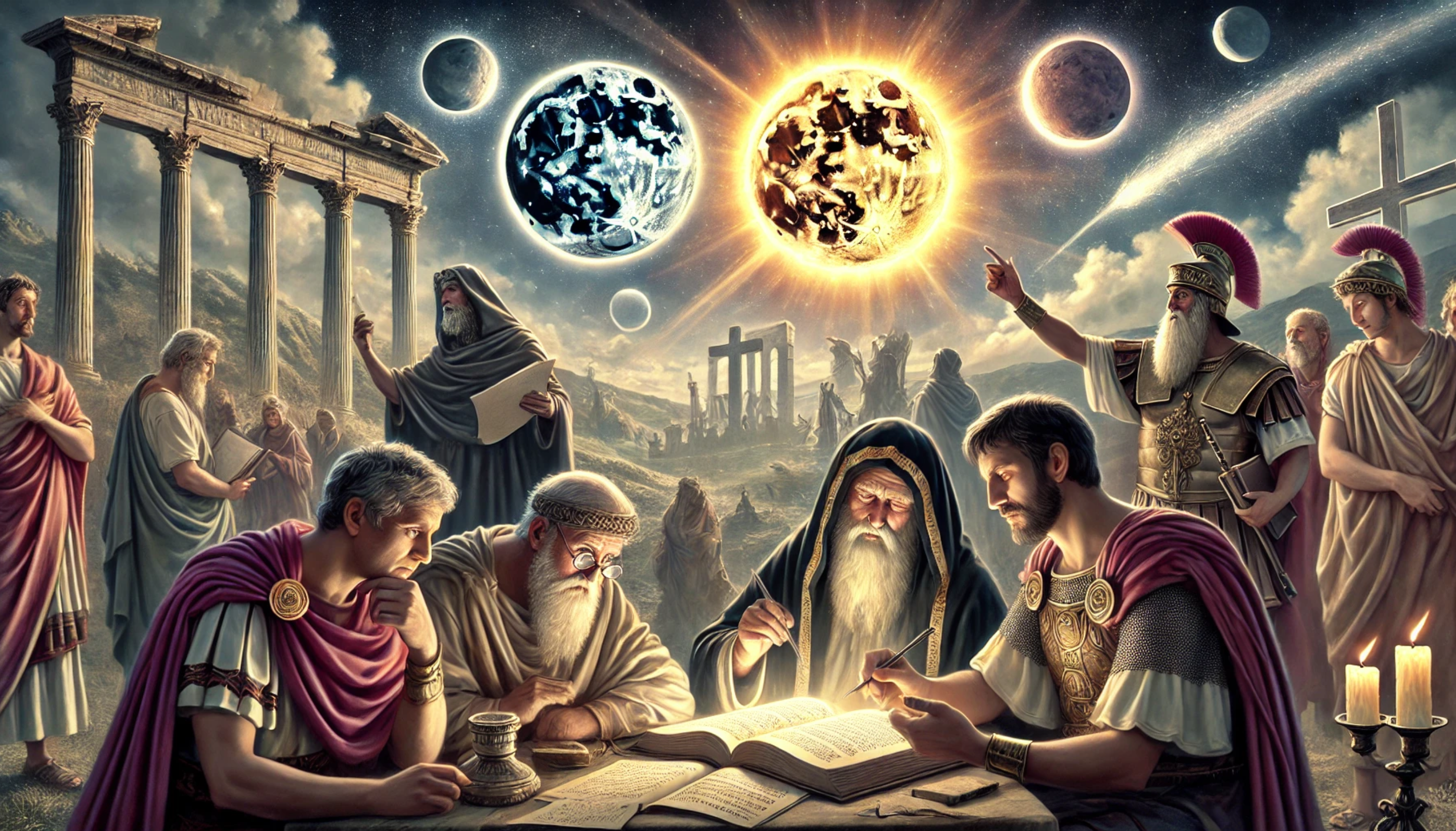Historical Sources Supporting Jesus' Crucifixion (33 AD)

Published on: February 25, 2025
Table of Historical References
| Source | Date Written | Affiliation | Mentions Crucifixion? | Mentions Darkness/Earthquake? | Key Details |
|---|---|---|---|---|---|
| Lunar Eclipse (March 13, 4 BC) - Traditional Herod's Death | 4 BC | Astronomical Event | ❌ No | ❌ No | Partial lunar eclipse traditionally linked to Herod the Great's death. Some scholars question whether this is the correct eclipse. |
| Lunar Eclipse (January 10, 1 BC) - Revised Herod's Death | 1 BC | Astronomical Event | ❌ No | ❌ No | Total lunar eclipse suggested as the correct one before Herod the Great's death, allowing for a 3-2 BC birth of Jesus. |
| Tacitus (Annals 15.44) | c. 115 AD | Roman historian (pagan, anti-Christian) | ✅ Yes | ❌ No | Confirms Jesus was executed under Pilate during Tiberius' reign (14-37 AD). Calls Christianity a "mischievous superstition." |
| Suetonius (Lives of the Caesars, Claudius 25) | c. 120 AD | Roman historian (pagan, neutral) | ✅ Implied | ❌ No | Writes that "Chrestus" (Christ) caused disturbances in Rome, leading to Claudius' expulsion of Jews (49 AD) (Matches Acts 18:2). |
| Phlegon of Tralles (Olympiades, Fragment 97) | c. 137 AD | Greek historian (pagan, neutral) | ✅ Yes | ✅ Yes | Records darkness at noon and earthquake in 33 AD: "The greatest eclipse of the sun... it became night at the sixth hour [noon]... great earthquake in Bithynia." |
| Thallus (cited by Julius Africanus, c. 221 AD) | c. 50 AD | Pagan historian (non-Christian) | ✅ Yes | ✅ Yes | One of the earliest non-Christian sources. Mentions darkness at crucifixion, tries to explain it as a solar eclipse (which is impossible during Passover). |
| Josephus (Antiquities 18.3.3, Testimonium Flavianum) | c. 93 AD | Jewish historian (not Christian, but neutral) | ✅ Yes | ❌ No | Confirms Jesus was crucified under Pilate. Mentions His resurrection and followers' persistence. Some Christian interpolations exist, but scholars agree on its core authenticity. |
| Josephus (Antiquities 20.9.1, James' Execution) | c. 93 AD | Jewish historian | ✅ Yes (Indirectly) | ❌ No | Refers to Jesus as "the Christ" while discussing the execution of His brother, James (62 AD). |
| Pliny the Younger (Letters 10.96-97 to Trajan) | c. 112 AD | Roman Governor (pagan, anti-Christian) | ✅ Yes (Implied) | ❌ No | Writes about Christians worshiping Jesus as God and refusing to deny Him, despite persecution. |
| Lucian of Samosata (The Passing of Peregrinus, c. 165 AD) | c. 165 AD | Greek satirist (anti-Christian) | ✅ Yes | ❌ No | Mocks Christians for worshiping "the crucified sage", confirming Jesus' crucifixion. |
| Celsus (Against the Christians, c. 175 AD) | c. 175 AD | Greek philosopher (pagan, hostile to Christianity) | ✅ Yes | ❌ No | Acknowledges Jesus' miracles, but claims He learned "magic" in Egypt. Confirms His crucifixion. |
| Mara bar Serapion (Letter to His Son, c. 73 AD) | c. 73 AD | Syrian Stoic philosopher (neutral, possibly anti-Christian) | ✅ Yes | ❌ No | Calls Jesus "the wise king" whom the Jews unjustly executed. |
| Talmud (Sanhedrin 43a, c. 200-500 AD) | c. 200-500 AD | Jewish Rabbinic source (anti-Christian) | ✅ Yes | ❌ No | Confirms Jesus was executed ("hanged") on the eve of Passover for sorcery and leading Israel astray. |
| **Early Church Fathers (Tertullian, Origen, E |
Timeline of Historical Sources
(A graphical timeline of these sources is also available.)